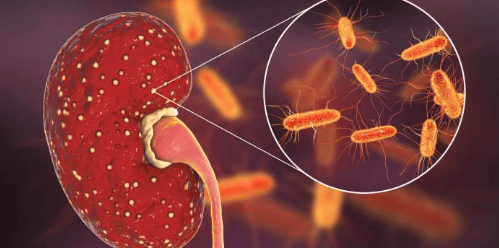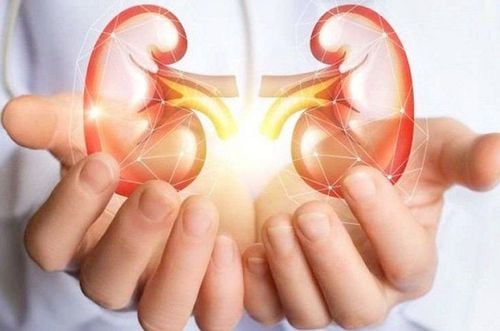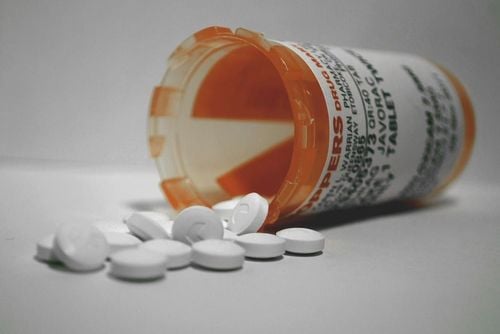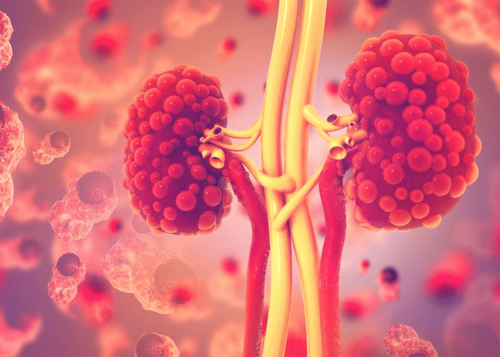This is an automatically translated article.
The article is professionally consulted by Master, Doctor Nguyen Thi Thanh Thuy - Endocrinologist - Dialysis - Kidney Transplant - Department of Examination & Internal Medicine - Vinmec Central Park International General Hospital.Acute pyelonephritis is a common urinary tract infection, the disease progresses acutely and can cause dangerous complications if not detected and treated promptly, so how dangerous is acute pyelonephritis? ?
1. What is acute pyelonephritis?
Acute pyelonephritis is an upper urinary tract infection, including acute infection of the renal calyces, renal pelvis, ureters and renal parenchyma.
Bacteria reach the renal pelvis and kidney and cause inflammation in 2 ways: Upstream from the bladder to the ureter into the renal pelvis or through the bloodstream when there is bacteremia.
The cause of pyelonephritis is bacteria, mainly gram-negative bacteria such as E.Coli, Klebsiella, Proteus mirabilis, Enterobacter.., less common Gram-positive bacteria such as: Staphylococci, streptococcus ..
Conditions favorable for pyelonephritis such as:
Lower urinary tract infection After urinary system surgery Urinary tract obstruction due to stones, tumor, junction syndrome, retroperitoneal fibrosis, cystic stenosis kidney ureter and pregnancy... Localized inflammation: cystitis, prostatitis, proctitis, appendicitis, appendicitis... Clinical signs of the disease:
High fever sudden chills, rapid physical deterioration, dry cracked lips, dirty tongue... Pain in the back ribs on one or both sides, dull pain, intense pain spreading down to the bladder area and external genitalia. The patient's dorsal fossa responds, pain, i.e. Bladder syndrome Painful urination, frequent urination (need to urinate, constant straining), blood in urine Anorexia, loss of appetite, nausea, vomiting, abdominal distension, muscles If treatment is late or inadequate, the disease will cause complications such as renal papillary necrosis, pyelonephritis, sepsis, renal failure, hypertension... these complications can cause death of the patient. death.

Nguyên nhân gây viêm thận bể thận do vi khuẩn
2. Danger of acute pyelonephritis

Viêm thận bể thận cấp tính rất nguy hiểm
Pyelonephritis is an acute disease, with aggressive manifestations of infection, the disease responds quite well to antibiotic treatment, if diagnosed and treated promptly, the disease can be completely cured after 10 to 14 days. . If not treated properly, the disease can cause dangerous complications.
Renal and perirenal abscess When an abscess is present, treatment is longer and may require drainage of the abscess.
Sepsis is a condition in which bacteria spread into the blood, presenting a severe systemic infection, which can cause septic shock and multi-organ failure. Sepsis can be life-threatening if not properly treated
Acute kidney failure This is a dangerous complication of acute pyelonephritis, manifested by oliguria or anuria, blood tests for urea levels. /creatinine very high. Acute renal failure can cause complications such as acute hypertension or acute pulmonary edema that can be life-threatening, if not properly treated, acute kidney failure can progress to chronic kidney failure.
Renal papillary necrosis Severe infection, prolonged pyelonephritis causes necrosis of the renal papillae, detachment of the renal papilla, and urinary obstruction, causing obstruction in the ureters or urethra. Causes aggravation of renal pyelonephritis. May cause acute renal failure and renal colic.
Chronic pyelonephritis, chronic kidney failure Acute pyelonephritis that recurs many times, or if acute renal failure is not adequately treated, will lead to chronic pyelonephritis and chronic renal failure.
To find out more about service packages of Vinmec International General Hospital and register for an appointment, you can contact HERE.













